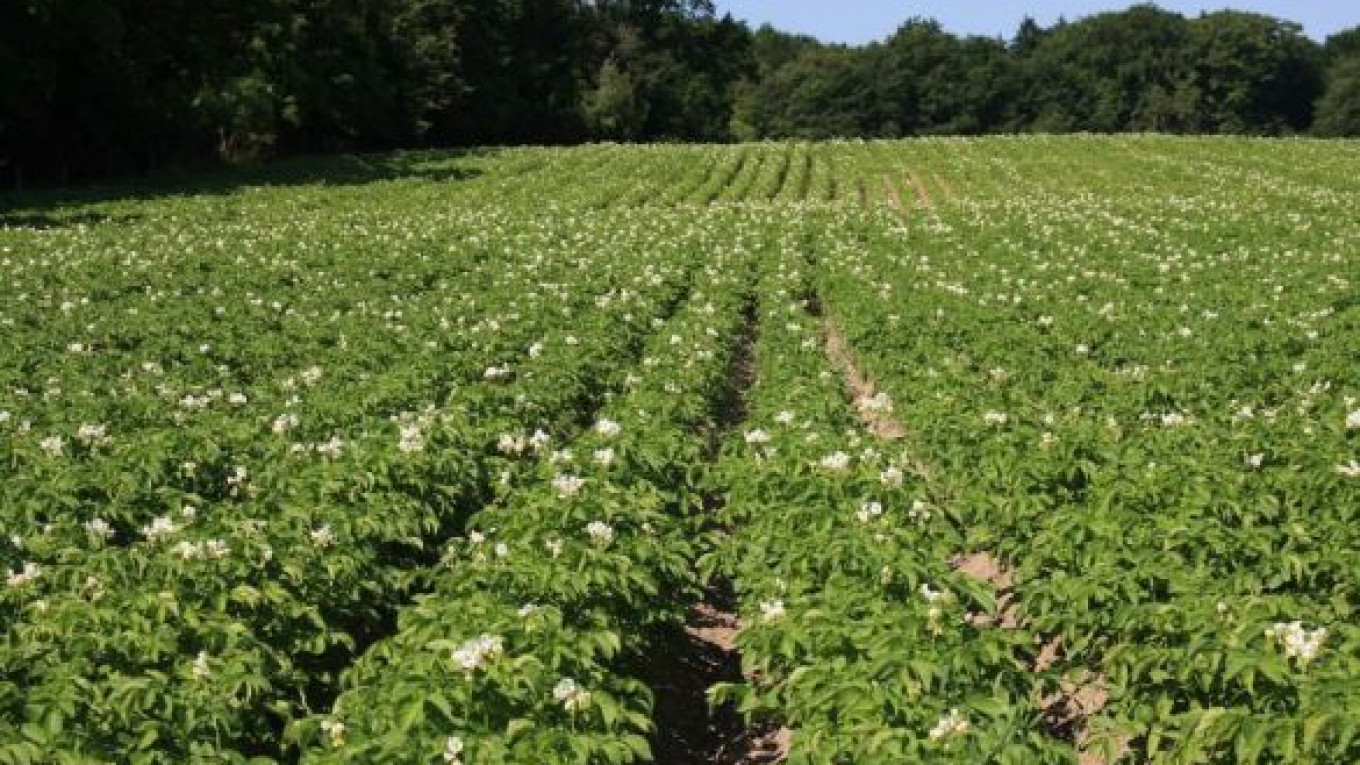KALININGRAD — In a country where organic food has a limited following, German baby-food maker HiPP has its work cut out for it.
But HiPP is so confident that its all-organic lineup of baby-food products will win over parents that it has opened a factory in Kaliningrad and is this year growing its first local organic potato harvest.
"I am very excited about this new harvest. Hopefully this won't be our last," general director and co-owner Sefan Hipp said at a recent company-organized visit to a Kaliningrad factory.
The annual baby-food market for Russian children up to 3 years old is estimated at 337,000 tons, or 1.5 million euros ($2.2 million), according to 2010 numbers by the Nielsen marketing firm.
Today companies using traditional farming methods dominate the market, but HiPP, which calculates its local market share at 5 percent, is optimistic.
The baby-food market is projected to grow 8 percent annually, and HiPP's market share in its native Germany is more than 50 percent, Hipp said.
HiPP was not always into organic food, but its path into the market gives it confidence as it tackles Russia.
The idea for the company was born at the turn of the 20th century when Hipp's great-grandfather, Joseph, faced a family crisis. His wife did not have enough breast milk to feed twins born in 1899. So Joseph Hipp, who ran a bakery, baked German zwieback specialty crackers, pounded them into a powder and mixed that with milk, water and some honey to produce a puree that fed the new twins and his next five children.
One of those sons, Georg, turned the puree into a business and later introduced the concept of organic baby food. In 1967, his son Claus decided to switch the entire company over to ecologically pure farming and organic food ?€” an idea that back then, to put it mildly, was considered crazy.
Now the family is recognized as a pioneer of organic farming in Germany, a trend that has quickly caught on in Europe.
The reality that the organic food market in Russia accounts for less than 1 percent of the total market does not scare the Hipps, who continue to look for land plots close to fresh water sources and away from highways and conventional farms, to avoid cross-contamination that may result if the wind blows in the direction of an organic farm ?€” destroying all their efforts.
Other baby-food manufacturers, the majority of which use chemical fertilizers and pesticides, beg to differ with HiPP's strategy. They say organic baby food is nothing but a marketing move by companies aiming at the premium market segment.
But HiPP says the idea behind organic food is not only to give babies the best and most natural food possible but also to preserve soil, water, forests and pastures to pass them on to future generations.
The products that the company uses to produce the food are grown on farms where cows, sheep and horses roam free, potatoes grow untouched by Colorado beetles and clover grows shin high.
The beauty, however, comes at a price: The cost of HiPP organic food is 30 percent higher than that of other baby foods.
Today HiPP cooperates with about 6,000 farmers globally, with produce coming from countries like Italy, Spain and Turkey, and tropical fruits coming from places like Costa Rica.
This year, the company will have its first organic potato harvest in Russia, which has grown on a plot of land in the Kaliningrad region, which is also home to a HiPP baby-food factory in the village of Mamonovo, right at the border with Poland.
The plant has a capacity of 45 million to 50 million jars annually, with a possibility to expand to 200 million jars per year.
The plan is to focus on the one plant over the next five years and then possibly consider a second one, Stefan Hipp said.
The plant has been in operation since 2007 and is situated in a remarkably idyllic place with storks flying overhead. Russian mothers love to tell their children that they were brought by storks or found in cabbage patches. Hipp did not say whether his company was considering growing cabbage in Russia.
A Message from The Moscow Times:
Dear readers,
We are facing unprecedented challenges. Russia's Prosecutor General's Office has designated The Moscow Times as an "undesirable" organization, criminalizing our work and putting our staff at risk of prosecution. This follows our earlier unjust labeling as a "foreign agent."
These actions are direct attempts to silence independent journalism in Russia. The authorities claim our work "discredits the decisions of the Russian leadership." We see things differently: we strive to provide accurate, unbiased reporting on Russia.
We, the journalists of The Moscow Times, refuse to be silenced. But to continue our work, we need your help.
Your support, no matter how small, makes a world of difference. If you can, please support us monthly starting from just $2. It's quick to set up, and every contribution makes a significant impact.
By supporting The Moscow Times, you're defending open, independent journalism in the face of repression. Thank you for standing with us.
Remind me later.


